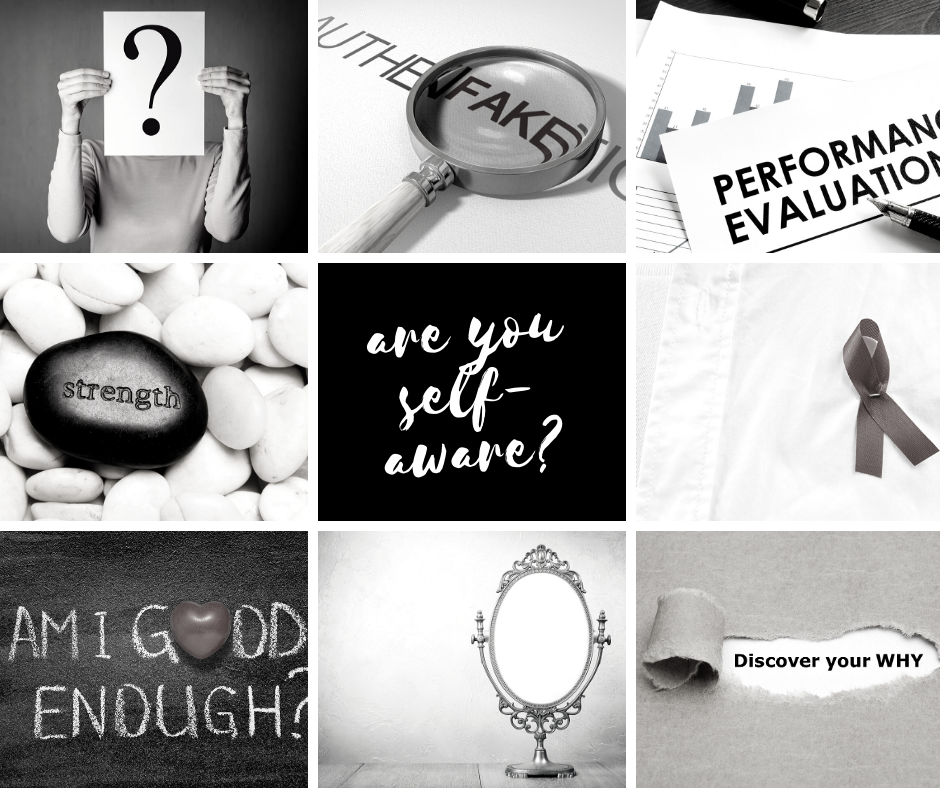

Self-awareness is the foundation of leadership. One needs to understand themselves before they try to understand others. The capacity for continuous learning and self-reflection are what help us navigate life changes successfully. Leaders* need to develop and mold themselves throughout their leadership journey.
Developing one’s self is a necessary element of successful leadership. Over the years, I have found that when I take the time to really focus on who I am and what I bring to the leadership table that I am much more confident and effective than if I simply show up and try to get the job done. Leaders are constantly having to prove what they are capable of and how it will have a significant impact on the group they are a part of. CliftonStrengths has been an especially effective tool for me to reflect on my way of being and doing. By having a language to share about who I am, it is much easier to help others quickly understand the most effective ways to interact with me and what they can expect from me in any given role.
In my younger years, I was never one for much self-reflection, but now I see the value in taking time for myself to continue to learn about myself. Effective leaders know they should not pretend to be someone they are not, making it necessary to feed their strengths. As leaders, we need to advocate for ourselves in our continued growth process rather than rely on others to recognize this need. Through innovation, sound judgement, taking responsibility for our own actions, and taking risks, we will thrive.
Over time, I have figured out who I am as a leader, but not without much trial and error in my self-discovery process. I have had to find the appropriate balance of the usage of my natural talents as there is a time and place when each could be used and received most effectively.
Here are some things I know I am…
• I am the oldest daughter of blue-collar workers and the first in my family to attend and graduate college.
• I am a 36-year-old working mom who has evolved in my career path from journalism, retail, textile design, marketing, higher education, and leadership coaching.
• I am a wife to a supportive husband, who I often take for granted, and have a hard time appreciating what I have.
• I am a Millennial…yes, all those stereotypes you are probably thinking. I seem to fit the bill.
• I am someone who wants to make a difference in the lives of others.
• I am working on my doctorate, writing a dissertation that addresses generational differences in the workplace.
• I am a workaholic, loving what I do, who takes on too much and sacrifices time with my family for my career and personal development.
• I am someone who has a hard time saying no.
• I am a hot mess at times, yet leave people wondering how I am able to “do it all.”
• I am a perfectionist, which is not a positive thing as many people may believe.
• I am a rule follower, which prevents me from advancing and being the best leader I can be.
• I am confident in my abilities and my strengths, knowing how I can help others be the best version of themselves.
• I am a work in progress, always growing and developing as I work with others.
• I am Goal Digger. I still struggle at times with self-awareness and taking risks to share my story. As I coach, self-awareness is the first step to personal development.
As a leadership coach and founder of Goal Digger, it is especially important to know who I am and help clients understand what I bring to the conversation. I have to own my story! As a Gallup Certified Strengths Coach, I am aware of how my own strengths play a role in my life and conversations with clients.
I am Futuristic, Strategic, Significance, Command, and Competition. Additionally, I claim Communication, Focus, Achiever, Activator, Individualization, Self-Assurance, Ideation, Maximizer, and Deliberative.
I look at the possibilities in people and organizations, generating ideas that will work to implement immediately as the people and organizations work through their own identity. I want people to walk away with an understanding of self and challenge the change that needs to occur. My strengths of Command, Competition, and Significance fall under the Influencing domain, which is what helps me take charge and speak up, whether it is for myself or others that do not have a voice. Additionally, my Strategic Thinking themes of Futuristic and Strategic are what keep me focused on possibilities. I might be seen as a dreamer, but I believe someone needs to be there with the “what ifs.”
I am an Extrovert, Intuitive, Thinking, and Judging or an ENTJ (Myers Briggs Type Inventory – MBTI).
I bring vision and strategic direction with my drive for results and have the enthusiasm to communicate it. This also means I may lack sensitivity to always factor in the feelings others and tend to jump to solutions before considering the practicality. I have learned to own this and through my self-awareness challenge myself to slow down and remember my known blind spots.
I know who I am, but that doesn’t mean my journey of self-discovery stops here. I need to continue to allow myself opportunities for growth and exploring what else I am capable of doing or being. I want to be able to be at peace with who I am and push some of those I am statements to the side as they feed insecurities I continue to work on. I have to get comfortable with being vulnerable and sharing what I need in order to be the best version of me because I cannot do it alone.
The science of personality testing is categorized under the old psychology of leadership (Haslam et al., 2011), but as a leader I use this seemingly archaic tool as a starting point for leaders to understand themselves. I firmly believe that we must understand ourselves before we can begin to lead and understand others. One way of doing this is through various personality tests. It helps give a language to the leader. I am open to new ideas and each time I find a new tool I’m excited to use it. I do believe that we can use personality testing as one tool to advance the critical thinking in leaders and have them consider more about themselves than they may think about.
*When I say leaders, I am in fact talking to anyone reading this because we all have the ability to be a leader!
Reference
Haslam, S.A., Reicher, S.D., and Platow, M.J.P C. (2011). The new psychology of leadership: Identity, influence and power. New York: Psychology Press.

